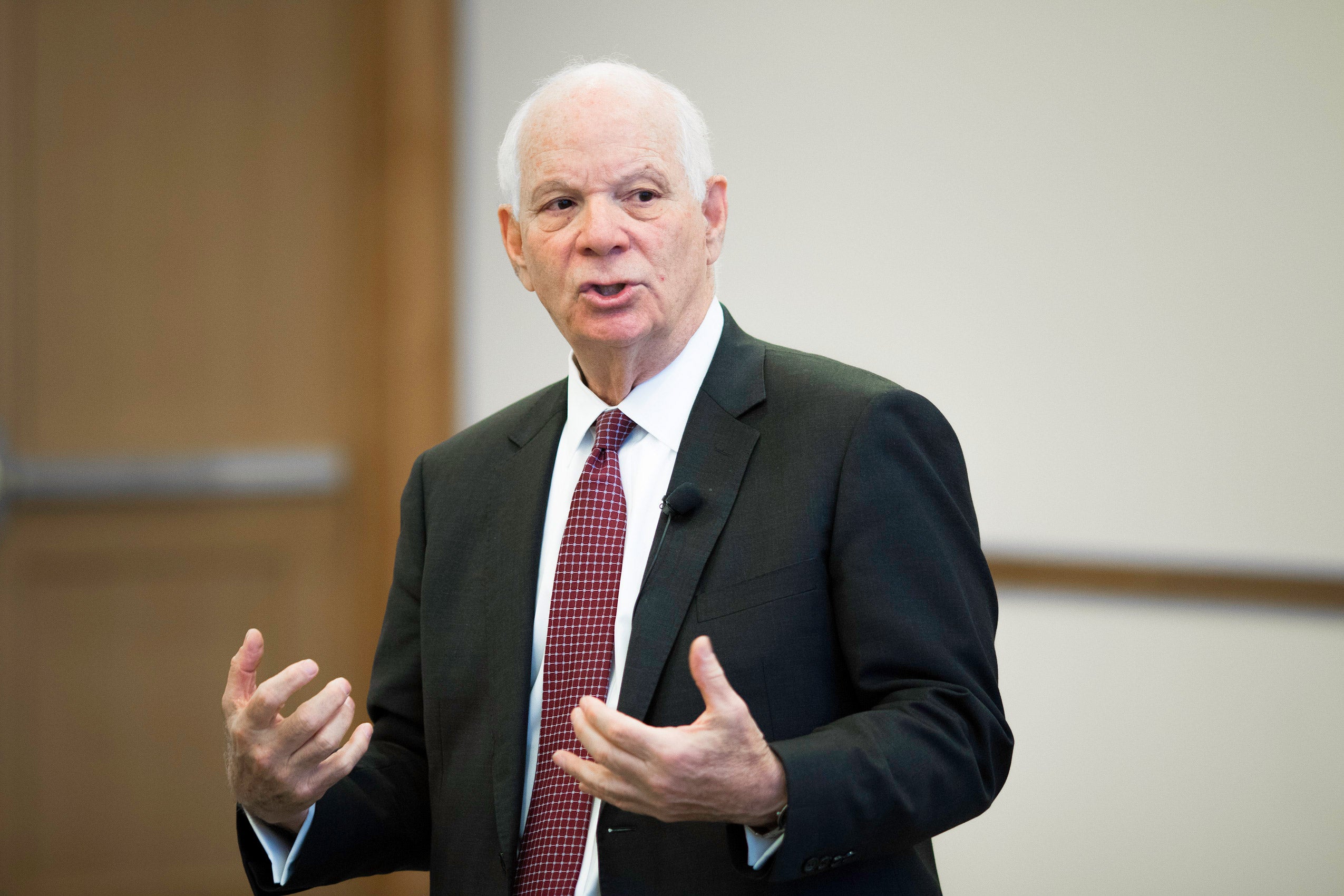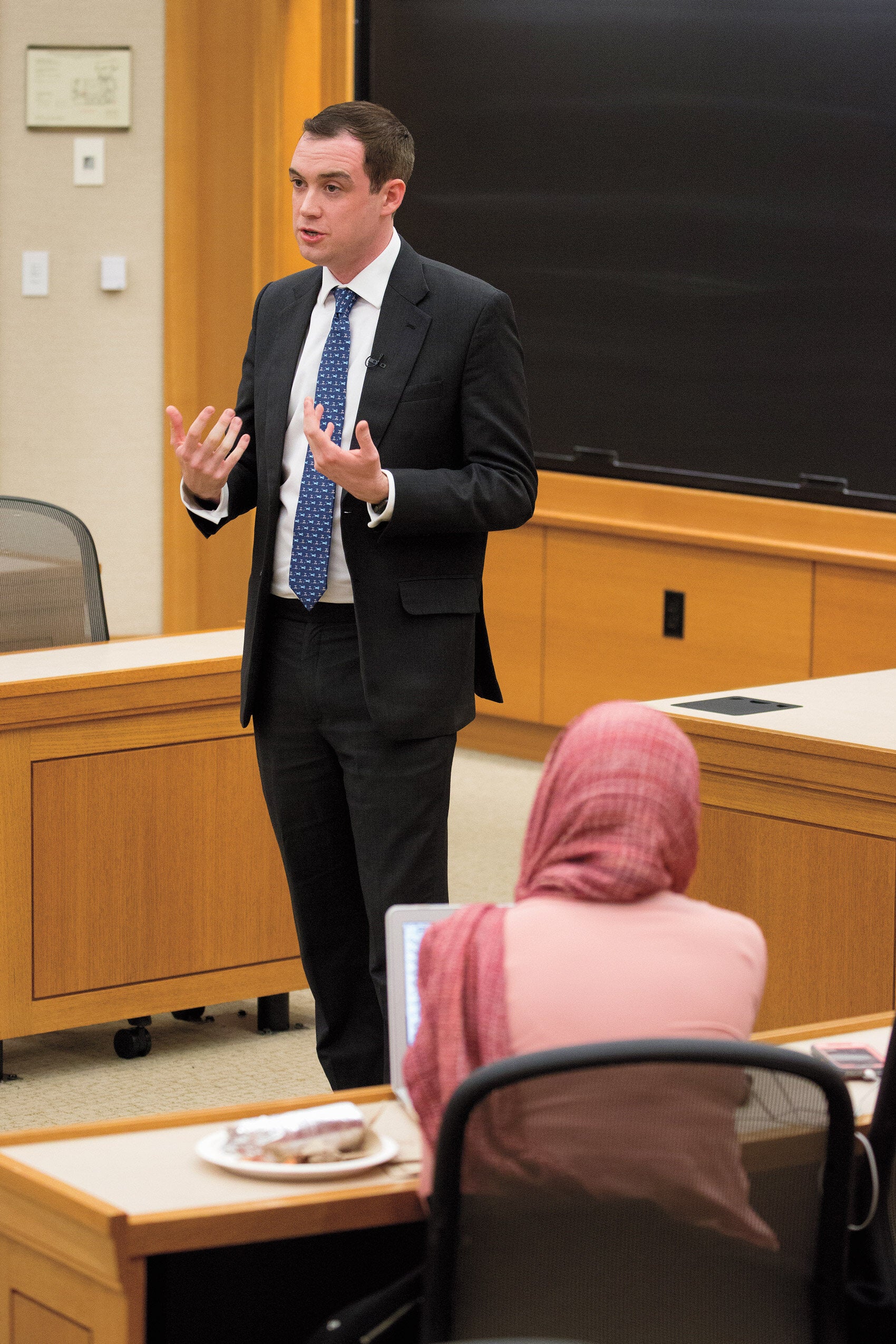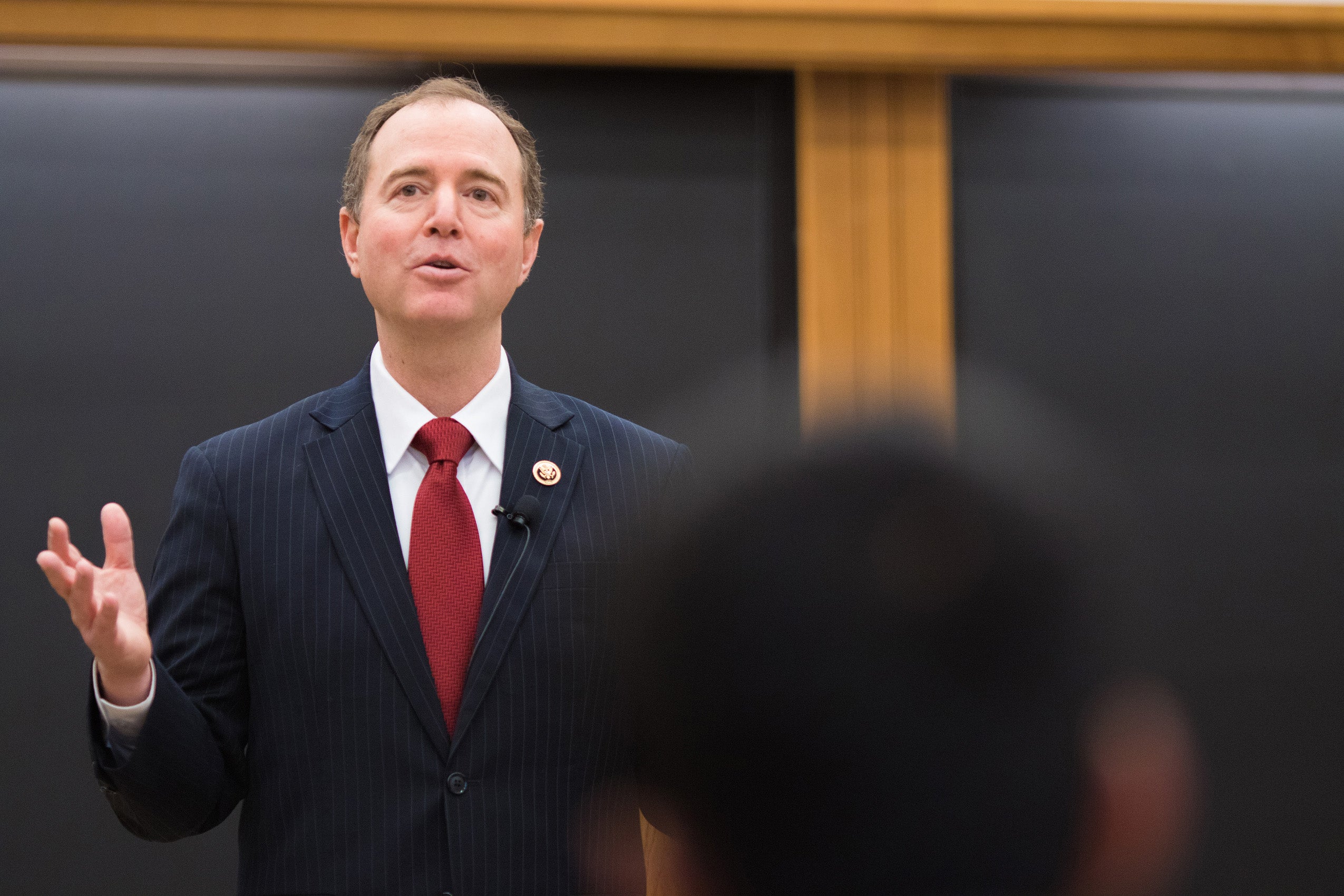In March, speakers at the Harvard Journal on Legislation’s 2017 Symposium, “Legislating on the World Stage,” explored the unique challenges of lawmaking in a context where domestic and international concerns frequently overlap and come into tension with one another. The Harvard Journal on Legislation (JOL), the nation’s premier legal journal focused on the analysis of legislation and the legislative process, has held an annual symposium since 2005. This year, the event took place March 6-10.
Congressman Adam Schiff ’85 (D-Calif.), ranking member of the House Permanent Select Committee on Intelligence and a member of the Select Committee on Benghazi, framed questions of privacy, security, and Russia’s role in the 2016 U.S. presidential election as part of his March 7 remarks.
Before getting into the Russia investigation, Schiff talked about the larger issue of the intersection between privacy and security, the boundaries of which were tested at the time of the Edward Snowden leaks, when it was discovered that the government possessed metadata that came from telephone companies, and after the San Bernardino terrorist attack, when an iPhone related to the incident was found to contain encrypted data.
Regarding Russia, Schiff said that the investigation into active measures during the 2016 election campaign is “quite breathtaking” in its size and scope. “There are four buckets of issues that we are investigating,” he said. “The first is the very public assessment that Russia hacked our elections with the intention of sowing discord in our democracy, undermining Secretary Clinton and supporting Donald Trump. The first question is whether the intelligence committee got that one right—and frankly, I don’t think there is much debate that they did.”

In a keynote address, Sen. Ben Cardin (D-Md.), ranking member of the Senate Foreign Relations Committee, said that while China, North Korea and ISIS all pose significant threats, the greatest one would be Russia — and by extension, President Donald Trump’s cozy relationship with that country. In his view, Russia’s alleged hacking of the recent U.S. election marked the most significant attack by an outside force since 9/11.
“Many people think it was as significant as Pearl Harbor,” he said. “Russia’s aim was clear: To bring down the credibility of free and fair elections, and they were also favoring one candidate. They did it through a cyberattack, and through perfecting fake news, using social media apps to make the stories look like real and important ones. They perfected that and became an influence in our election.”

James Wharton, a Conservative member of the United Kingdom’s Parliament, spoke to attendees later in the week about his role in Brexit, the June 2016 vote that decided that the U.K. should leave the European Union. Wharton said he proposed the referendum question to Parliament in May 2013, long before leaving the EU was a mainstream proposal, but it did not pass in the House of Lords. In a June 2016 referendum vote, 52 percent of voters opted to leave the EU, with some citing a desire to assert the U.K.’s independence and to curb immigration from other countries.
Wharton said that although he expected the talk to focus on comparing British and American politics, he was pleased to advise students on the role of law in creating a more just society.
“[The message I wanted to give], particularly for those who are going to be lawyers, to be judges, to be leaders of industry, this is a place that creates some of the leaders of the future,” he said.
Read the full story on the Harvard Crimson website.
Since 2005, the Harvard Journal on Legislation (JOL) has held symposia on topics such as National Security Reform, Immigration Law, Drug Policy, and Privacy in the Digital Age. The Journal frequently publishes policy essays written by current or former members of Congress.
